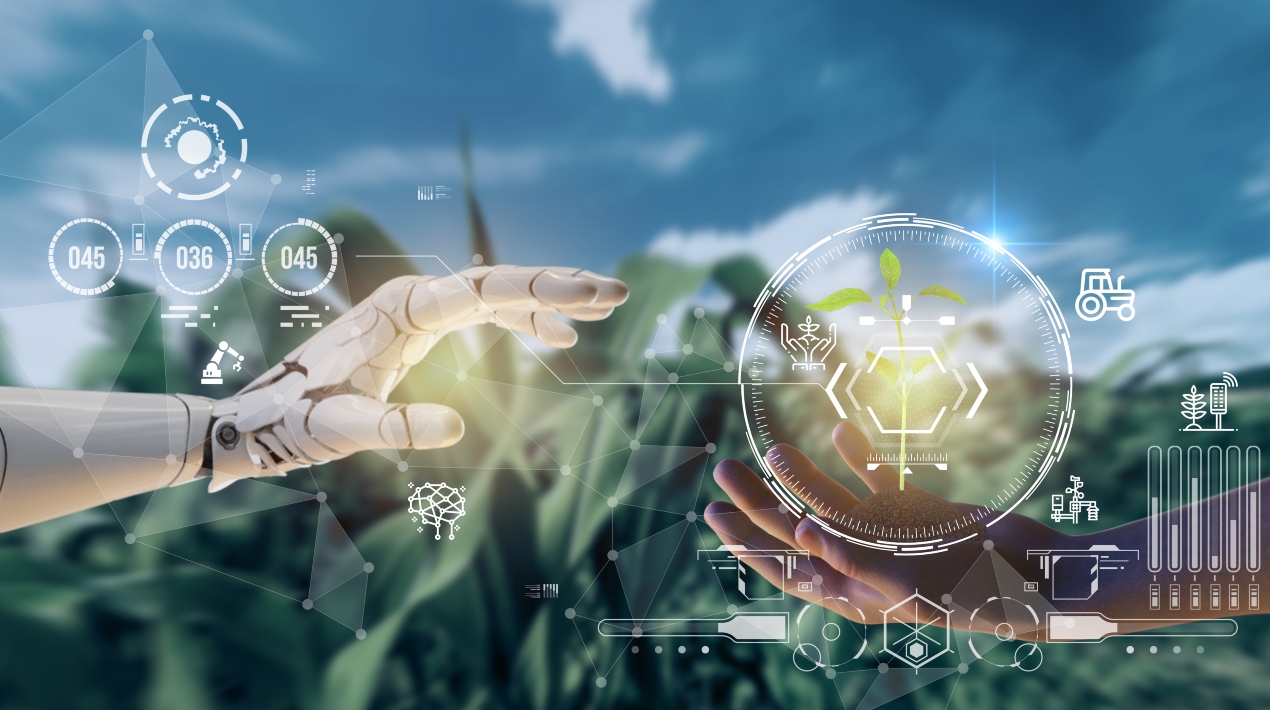
Marsudi Wahyu Kisworo, a member of the Steering Committee of the National Research and Innovation Agency (BRIN), has encouraged the developing of new, high-tech agricultural machinery that incorporates artificial intelligence (AI). Improvement is needed to solve farmable territory and labour, which are declining steadily.
“When people’s desire to become cultivators declines, we can’t speak about labour-intensive methods anymore. We can speed up work on electrified vehicles. Electric farming equipment, such as solar-powered, driverless tractors, is another area where technologists can make a difference,” Marsudi said during a recent Learning Room Webinar hosted by the Industrial Engineering and Management Competency Training Institute on the topic of Trending Food and Energy Innovation.
Smart farming is another area where ingenuity is necessary. Marsudi advised using information technology (IT), electronics, the internet of things (IoT), and other fields to create better farms where everything can be automated.
The primary key in farming output is how to increase yield in the headwaters, and one method to do this is genetic engineering. The use of precision farming techniques, such as the deployment of aerial drones to apply nutrients and water, represents the next wave of agricultural innovation.
“IoT technology is also required to detect plants,” he added. “For instance, when to give water, for example, when it is enough, the tap will automatically close, and so on.”
He also elaborated on how Indonesia’s food supply would look in the year 2023. The National Food Agency (Bapanas) reports that many staple foods must still be imported, including sodium, sugar, ruminant flesh, garlic, and legumes. Genetic engineering and other technological advances can address the output bottleneck. Increased yields are possible thanks to technical modifications to the seedlings.
“Take sugarcane output as an illustration; on average, a hectare of land yields only about 60 to 70 tonnes of sugarcane per year. However, it can reach up to 140 tonnes of sugarcane per acre in India and Brazil. That’s why we need genetic engineering—the cost is double the original estimate.”
According to Marsudi, raw material delivery is another area where Indonesia requires post-harvest technology. The percentage of wasted or spoiled food in Indonesia is 30%.
He argued that the rapid spoilage of rice and other food ingredients was due to the concrete walls of the storage building. A storage chamber with the atmosphere regulated, for example, with ozone to prevent the growth of decaying microbes, is an example of “innovative controlled atmospheric storage” (CAS). The practice has become a routine elsewhere but needed more infrastructure development in Indonesia.
The most prominent food exporters are not necessarily the largest nations in terms of geographical size. The United States, the Netherlands, Germany, and Brazil are the world’s top five food exporting nations.
High food output can be achieved without vast swaths of territory; advanced machinery is required. The world’s leading food exporters are “very aggressively” implementing technical advances across the board, from upstream to downstream, increasing food output. The BRIN’s existence is intended to increase Indonesia’s crucial capability and research expertise by pooling together science and technology resources like people, equipment, and funding.
“BRIN is here to create a global standard research and innovation ecosystem that is open (inclusive) and collaborative for all parties, academia, industry, community, and government,” he reminded.
By 2045, Indonesia plans to have a GDP per individual of $23,000, making it a prosperous nation. Meanwhile, in 2022, the GDP per person will hit $5,000. The government must innovate to escape the middle-income trap. Marsudi summed up, “We need a research-based economic foundation that is sustainable and that focuses on the digital, green, and blue economy.”
















